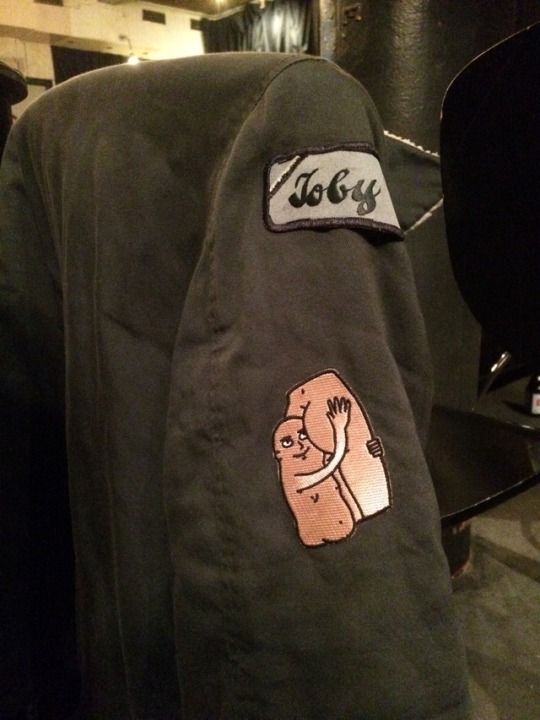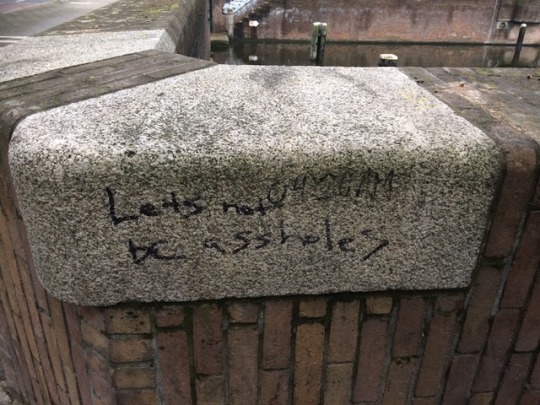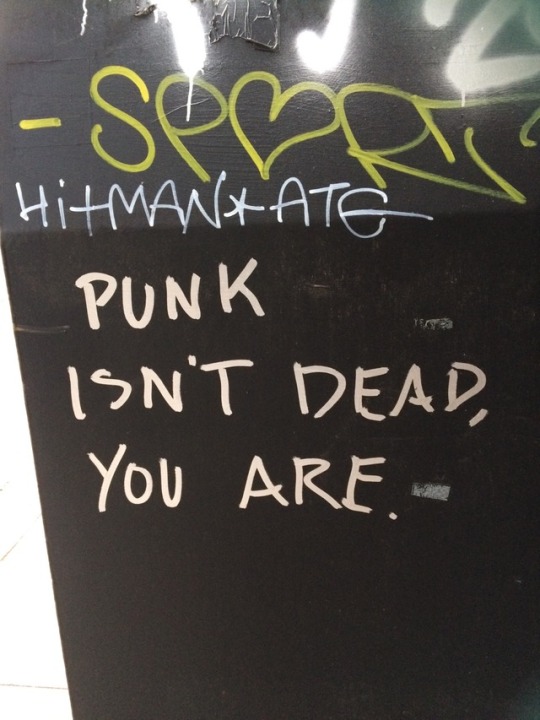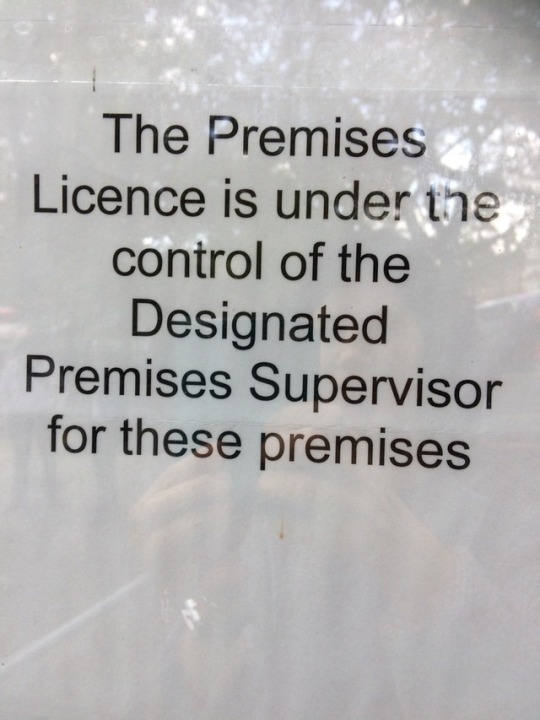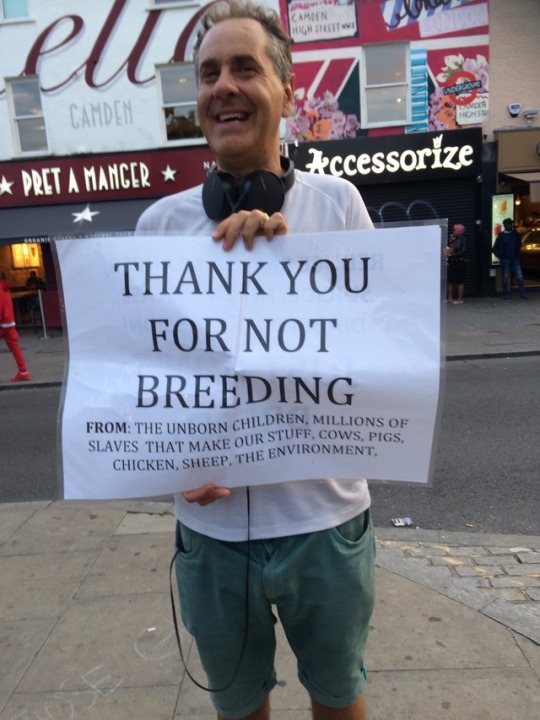Text
Square Eyes
Do they still say that if you watch too much television you'll get square eyes? Or is that an expression that went out of fashion when kids started spending all their time in front of the internet? Putting aside the obvious riposte (televisions aren't square, they're rectangular) I can report that I have been doing extensive research in this area and have come to the scientific conclusion: no, you won't.
I have been watching so much television. SO MUCH TELEVISION. I never believed that I could watch such an immense quantity of television. On the whole I don't watch it during the day except for sometimes when I am having my breakfast and also when having my lunch, but in the evenings, when I have finished pretending to work, I might start watching television at about 6pm, or 5pm, or 4pm on a bad day, and keep going until, say, 11pm or midnight. HOW IS THIS POSSIBLE. HOW CAN A PERSON LIVE THIS WAY. Well it's easy enough, it turns out, if you're under lockdown in London in December and it's dark from 4pm and raining most of the time and you have the emotional resources of a gnat and reading is too demanding and talking on the phone is too exhausting and the light in the living room is not good enough for doing a puzzle in evening hours and you quit social media a month or so ago because it was driving you out of your mind with anxiety.
I don't watch six or seven or eight hours of television every night. Don't be ridiculous. Some nights I only watch about three hours of television because I have a Zoom call or I'm cooking dinner or I've got stuck into a good cryptic crossword, maybe the Saturday Times Jumbo one because the Guardian ones are too gimmicky, or at last I've found a book gripping yet easy enough that I can't put it down (thank you Robert Galbraith, thank you Marian Keyes), but I would say that three hours is the minimum and my god that is a LOT. EVERY DAY. THREE HOURS. MINIMUM.
But you don't need to me to explain that to you because you are all watching three four five six seven hours of television every day and when you are not watching television you are phoning your friends and first of all talking about the specific way that your own personal lockdown is terrible but then eventually saying 'what are you watching on television' because what else is there even to talk about?
At the start of lockdown there was quite a small pool of television that everyone was watching (that thing about the Tiger King, which I didn't watch because by the time I got back from my early lockdown in Costa Rica you'd all seen it, and Normal People which I didn't watch because I was too embarassed to sit through all the sex scenes with my flatmates, and I May Destroy You, which I didn't watch because about five minutes of it was enough to send me into a massive panic spiral, but I hear was very good), but once we had all (other than me) got through that and Covid dragged on for months, our conversations began taking on the tenor of Vikings crowding around one another as a boat returns from a foray, WHAT IS OUT THERE, WHAT DID YOU FIND OUT THERE, IS THERE SOMETHING OUT THERE THAT I MIGHT DESIRE? And the Viking says yes, there is this thing called Schitts Creek but you really have to push on through the first season because I promise you it gets better and better and you will start to love that obnoxious family. And then we all watched Schitts Creek. (Including me, it's wonderful, you have to push on through the first series you will start to love that obnoxious family, Dan Levy is a divinity in human form and if you want more of him you could do worse than checking out the lesbian Christmas-themed romcom Happiest Season, which you can rent from Amazon Prime.)
And now we are beyond even that and all our lives resonate with the screeching sound of a televisual barrel being scraped and now this is when things get really interesting (or put another way, VERY VERY BORING) because everyone has fractured and we are all watching different kinds of random stuff found in the dusty corners and unloved algorithms of our streaming services. There's the friend who has got into watching obscure French crime series on Netflix (The Chalet! La Mante!) and the friend who is watching every episode of Poirot on Britbox (thirteen series, 70 episodes) (though that pales in comparison with the friend who did a total rewatch of Friends from beginning to end (236 episodes) and finished it ages ago and is starving for more) and the friend who calls me up seemingly every week with a new old show nobody else has ever heard of (such as the early 1990s Nigel Havers and Warren Clarke comedy spy drama Sleepers, which he is watching old-school-style on DVD, and which apparently is like The Americans only with Nigel Havers and funny, and also, you should watch The Americans.)
When I look back on the amount of television I have watched this year it defies comprehension. There were the things I would have watched anyway like the whole of Strictly Come Dancing and His Dark Materials, and the things that took me by surprise, like the stealthily hilarious Danny Dyer gameshow The Wall that was on straight after Strictly and drove me into a total obsession with the way that Danny Dyer says "Drop 'Em" (he's talking about the balls that are dropped down the wall, it's hard to explain, you can find it on iPlayer, but meanwhile if you only click on one link in this whole newsletter PLEASE click on that one), there were the things that were created especially to get me through lockdown (the wonderful David Tennant and Michael Sheen Zoom comedy Staged, which is not only extremely funny but allows you to see inside David Tennant's house which I'm not sure I am technically allowed to watch because of the restraining order? Anyway, new series coming on Monday, fellow DT fans) and the familiar things I watched to soothe me when it all got too much (Doctor Who, starting before Tennant even gets in on the action, right at the begining of the New Who seasons with Christopher Eccleston, because armchair space travel is the only kind of travel we are going to be getting for a while) and the exciting things I watched when I could no longer bear the tedious repetition of every identical day (Line of Duty, in which the famous-for-the-far-inferior Bodyguard writer Jed Mercurio delivers ludicrously compelling twisty-turny stories about police corruption that cannot be predicted for even a nanosecond) and the things that I watched just because I loved them (Fosse/Verdon, the Bob Fosse and Gwen Verdon bio-series starring the breathtakingly charismatic Sam Rockwell and Michelle Williams, which is one of the best-made pieces of television I've ever seen, Love Life, the Anna Kendrick romantic comedy series which was surprisingly touching and truthful about the relationships that make up a life and which didn't make me want to open a vein as a single person the way that many looking-for-love shows do, and Better Things, a sort-of-comedy sort-of-drama written, directed by and starring Pamela Adlon, which began as a collaboration with Louis CK and initially reflected the sensibility of his show Louie, but became far more experimental and interesting once, after CK's disgrace, Adlon took over completely - the fourth series is maybe the closest thing I've seen on TV to a representation of the rhythms of real life, with long scenes of Adlon just cooking a meal on her own, or contemplating the rain, of having arguments with her children that explode from nowhere and end just as suddenly with tears or laughter or nothing at all.) And this entire paragraph is just things that I have watched on the BBC. Not even everything that I have watched on the BBC. The BBC is INCREDIBLE and my license fee has been serious value for money, before you even count all that time spent watching the news [Munch Scream emoji]. But overall, it doesn't even begin to scratch the surface of television that I have watched this year.
Though while we're here, have you noticed that sometimes it's more relaxing to watch something bad than something good? Have you noticed that a vapid, cliched show like Virgin River (heartbroken city nurse with a secret moves to small town and falls in love with battle-wounded bartender with a secret), a show that makes This Is Us look like Succession, has the same effect on your brain that taking off your work shoes and putting on your slippers has for your feet? You can rest now, it says, there is nothing more for you to do. Have you noticed how easy it is to chug down, say, four episodes in a row of Designated Survivor - a show designed by a committee charged with taking elements of The West Wing, Homeland and 24, and making something similar but, crucially, much more ridiculous - without your mind even noticing that anything has happened at all? And if you're really ready for something utterly idiotic, might I suggest The Bold Type, in which three twentysomething girls in bonkers designer outfits "work" at an aspirationally "feminist" glossy magazine, and by "work" I mean constantly leave the office in the middle of the day to take care of personal business, and by "feminist" I mean "empowering women by for example having them post selfies of themselves looking perfect but without makeup on social media", a feminism so very feminist that they called the magazine's parent company Steinem in the first series and then had to change it to Safford, I can only presume because Gloria Steinem threatened to sue them. A couple of episodes of that is the televisual equivalent of having a nice relaxing full frontal lobotomy. Don't get me wrong: I love these shows. I owe them more gratitude than I can say. I would be unable to survive without them.
I've managed to watch five hours of television just since starting this post24 hours ago (three episodes of Doctor Who, half a really cheap and very bad Sky Arts documentary about the musical Hamilton, and a travelogue in which Torvill and Dean go in search of a frozen lake in Alaska on which to dance Bolero but can't find one for almost the entire show because of global warming, which made me simultaneously and conflictingly want to give up air travel, fly to Alaska immediately, become obsessed with Torvill and Dean AND wonder how they managed to skate together all these decades without killing each other especially Torvill but also especially Dean). Five hours of TV, sounds like a lot, but with eight hours of sleep, that still left me eleven hours to fill in this boring boring boring boring BORING BORING BORING boring boring BORING boring BORING BORING lockdown. I think I am being incredibly restrained, all things considered.
Now if you'll excuse me, I have some time to kill, having finished writing this post, and with at least five hours to fill before bed.
I wonder what's on TV?
***
Want this in your inbox? Subscribe at https://tinyletter.com/mariephillips/
4 notes
·
View notes
Text
Bodyguard: I Have Notes
OK, I watched the last episode of Bodyguard last night and I need some help getting my head around this because I can’t tell if I was just missing the point or if maybe it was actually... not very good? Spoilers abound, obviously.
So, as I understood it, there were two conspiracies. In one of them, a coalition of terrorists and organised crime, aided by David’s corrupt boss, plotted a series of giant terrorist attacks and the assassination of the Home Secretary in order to... convice parliament not to pass legislation designed to curtail terrorism and organised crime. Hmmm. Is this plan, perhaps, unlikely to succeed? Someome might have pointed this out to terrorist mastermind Nadia, given that she decided to confess everything at the very end for no reason whatsoever, or perhaps they had a cut scene of James Bond being suspended over a tank of sharks by a rope gradually being burned through by a candle and she wanted him to know what a genius she was before he fell into the tank and got eaten alive hey what do you mean he escaped? Well never mind, they dropped the legislation anyway, so I guess the terrorists won? Yay?
In the other conspiracy, there was some kompromat - a highly satisfying word to type, by the way - that what appeared to me to be the same group of people spent a huge amount of effort getting into the hands of the Home Secretary and then a huge amount of effort trying to get back, simultaneously giving her the power to blackmail the Prime Minister and trying to ruin her reputation by giving her a speech riddled with mistakes, but wait hang on that was just an excuse to get poor Tarik to step on the pressurised pad that set off the bomb planted by the conspirators in conspiracy one, only there was no other connection between conspiracy one and conspiracy two so the briefcase thing was just a coincidence and the bomb was just terribly badly designed, or was there a joint conspiracy and I missed it because ever since Keely Hawes died I have slightly spent the time watching this also playing Sudoku? It would have helped if any of the Home Office / Security Forces characters had been differentiated from each other except for “tall, anoyed” or “short with glasses, annoyed” or “the creepy one from Utopia, creepy”. I got that the security forces and the police HATED each other, but I never figured out if there were factions within the security forces, but even if there were, they all seemed to use the same sinister fixer guy whose real name we never found out and who ended up with a faceful of teargas. I never figured out who lost or won, or what anybody’s ultimate plan was, so I didn’t know whether whatever whoever wanted to have occured had indeed occured, and cared less.
There were pleasures. I was very invested in David and Julia before they killed Julia, and I remained invested in David afterwards, because he was a genius strategic thinker who seemed rather wasted in his previous job of standing still near politicians, though I’m not convinced they did anything particularly interesting with his PTSD. The action sequences were fantastically tense - Jed Mercurio has enviable skill, also frequently in evidence on (the far superior) Line of Duty, in taking the bland stuff real police are scripted to say and making it bloody terrifying. Plus I hugely enjoyed Chanel who appeared to have stepped directly out of Made in Chelsea with her amazingly insincere affect (I mean it’s possible she was a bad actress but I am sincerely more inclined to think she is a comic genius with a gift for mimicry of that very particular style of talking).
Overall I feel sad that everyone got excited about this rather than Line of Duty, but I will probably watch season 2 when it happens anyway, because I still believe in Jed Mercurio. And I really really hope they bring back Chanel.
8 notes
·
View notes
Text
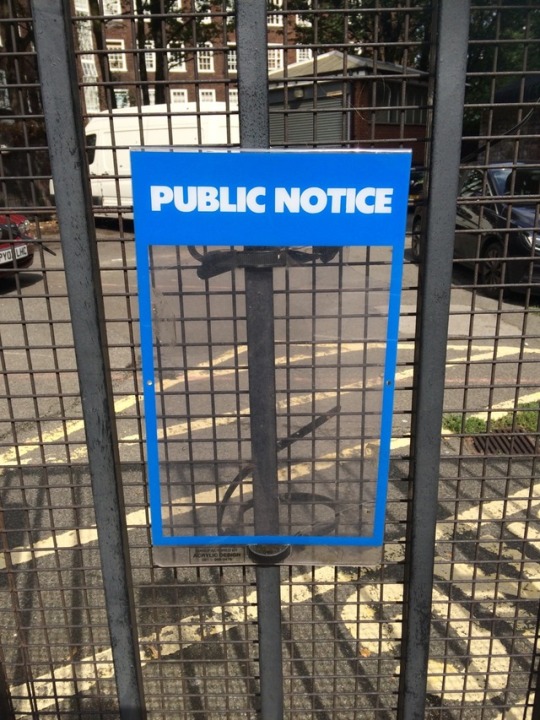
When you’re a writer - or maybe when you’re anyone - there are phases in life when you’re putting stuff into the world and phases when you’re taking stuff in. I’ve got a new book coming out at the start of next year (‘Oh, I Do Like To Be...’ - it’s about Shakespeare clones, if you didn’t know) and that coincides with a period of taking stuff in, absorbing from the world around me while I gear up for my next project. And I’ve been noticing signs, not of the cosmic variety, but of the communicative sort - posters, graffiti, stickers. Little bits of language scattered around for passers by to find. Micro-connections. So I started looking for them and now I see more and more. Clues on an urban treasure hunt. A day or two ago I started taking pictures of them and I thought it would be fun to share. Hope you enjoy.
67 notes
·
View notes
Text
In case you were wondering if it was all feminism and Madeleine Albright around here, I am currently preoccupied with the question of what happens to all the zombies once they’ve successfully turned all the humans into other zombies or eaten their brains. They’re all going to starve, right? It just doesn’t seem like a good strategy, turning your food source into more versions of yourselves who will only compete for the now diminished quantity of food. The only way to survive is to keep some humans in a farm, and I’m not sure that zombies have enough forward planning skills or impulse control for that. Basically it’s going to finish very badly for the zombies who really should have thought their end goals through before setting off on this apocalypse.
2 notes
·
View notes
Text
See something, say something, do something
Madeleine Albright came to Amsterdam last Friday and I was lucky to be in the audience to hear her speak. She’s incredible: witty, articulate, clear, direct, with a huge amount to say about the state of the world today. She’s written a book called Fascism: A Warning, and why yes, I did just link to that on Hive, because you don’t go listen to Madeleine Albright speak about fascism and then pop up a link to Amazon. I haven’t read it yet but if she writes the way that she speaks, I feel total confidence in making the recommendation. The book is not only a history, but also a call to action.
Albright insists on the importance of not taking our democracy for granted, of not lying down with our heads under our collective pillow and waiting for this all to pass. We - by which I mean the centre / left / liberals I assume are sharing this filter bubble with me - may not be in the majority now, but true democracy is both about the power of the majority and also the rights of the minority. When we abandon the fight, we allow things to move closer and closer to the winner-takes-all system of autocracy; of fascism. Her slogan, she says, is: see something, say something, do something. Sometimes I feel like I’ve been trying to avoid doing all three. The news is best viewed in short doses through splayed fingers, and as a writer my ‘saying something’ is my ‘doing something’, but through the medium of comic fiction, can I say / do anything with impact?
Enter Hannah Gadsby, whose ‘Nanette’ I watched on Netflix last night. Framed as an explanation of her desire to quit comedy, Hannah deconstructs the nature of the joke: the skillful comedian creates tension and then relieves it, but there are some forms of tension that should not be relieved. At a time when voices that have long been silent are finally speaking up in anger, should we still be seeking out the soothing panacea of laughter? Most funny people know that we learned to make people laugh as a way of making difficult situations easier, of popping balloons of anger or unhappiness in a sad home, a hostile school. We make the joke and the discomfort goes away, but where does it go? We swallow it, and it lives in our bodies. And in the outside world, nothing changes.
But, as Gadsby’s show perfectly illustrates, comedy can also be a constructive way of making the unpalatable palatable. It is the jam in which you can conceal a very bitter pill. Comedy writers need to ask ourselves: who is the butt of the joke, what is the reason for the humour, are we bringing people closer to necessary discomfort or are we taking the tension away too easily, so that they don’t have to face up to the darkness any more - the darkness outside and the darkness within.
Albright and Gadsby have challenged me to make sure I am taking full responsibility for the things that I write, not just going for the joke in the hope that it will make everyone feel better, that it will make me feel better. In their different ways, they have emphasised the importance of sitting with discomfort and engaging with it, not just trying to make it disappear.
And writing this piece is not enough. It’s what I do next, and next, and next.
1 note
·
View note
Text
#metoo fatigue?
So last Tuesday morning I published this piece on The Pool. It's about my experience with upskirting, a topic under much discussion in the UK this week since a Tory MP derailed the discussion of a private members' bill aimed at making it a crime. It's not a particularly unusual subject for me to write about - although my fiction is mainly comedy, I write more serious lifestyle and women's pieces for The Pool. I mention this because it was striking to me how little engagement this piece seemed to get, compared to other stories I've written there. Obviously, this could be because the piece sucks, though in my experience when you write something shit on the internet people don't tend to feel a need to hold back from telling you so. I don't have access to The Pool's stats, but from my own on Twitter, the tweet I posted has got 867 views to date, but only nine people actually clicked through to read the article. Of those, four retweeted, so I have to assume there's nothing wrong with the piece per se. Meanwhile The Pool's own tweets and post on their Facebook page have had very few responses or comments. Usually when they put one of my posts up I'm fielding comments all day. Before this all starts sounding very Woe Is Me, I'm not too personally bothered about being ignored, but I can't help but wonder, Carrie Bradshaw style, whether this is a sign that people are getting bored of #metoo? Does it feel like a trend that has had its day, and now can we stop reading endless articles about people describing getting sexually assaulted and move on to something that feels more fresh? If so, that's a dangerous shift, because the actual sexual assaulting of women remains as popular as ever, and bar a few high profile men getting their arses handed to them, I don't see that much has changed. The Pussy Grabber In Chief is still leader of what we used to think was the free world. Johnny Depp remains the face of Sauvage, the scent to wear if you want to smell like the shape of an iPhone imprinted into Amber Heard's face. This is not something that we are ready to move on from. The challenge, then, for writers and publications, is how do we keep this conversation going without alienating the people we need to reach?
0 notes
Text
Delete
Even as I write this, I am deleting my Facebook profile. It’s been coming for a while, but the Cambridge Analytica revelations of today were the final straw. I feel so stupid: why did I feel that I could share so much of myself without that information being used against me? I doubt that I personally have been targeted by Cambridge Analytica - obviously I couldn’t have voted for Trump even if I’d wanted to (ha!), and an algorithm doesn’t have to be too smart to figure out that a left wing half-French woman living in the Netherlands is unlikely to vote Brexit. But there’s no way of knowing how else my data has been used, how I have been manipulated, how companies have used me as a Trojan horse to get to my friends. And of course the thing about being skillfully manipulated is that you don’t notice it’s happening.
None of this has come as a complete surprise. I’ve ignored it out of convenience, because Facebook is useful and fun. But when I looked up how to delete my account, Facebook advised me first to download the data associated with it, and directed me to a link that provided me with a list of what sort of data that is. Check it out. It’s incredibly sobering when laid out like that: there’s so much of it and I was giving it away to any old What Good Place Character Are You test wanted it. (When I did the What Good Place Character Are You test, I got Jason, the idiotic, naive character; under the circumstances, I can hardly complain.) I have to admit that my blood ran cold when I saw Cambridge Analytica were using personality tests to get at people’s data; those sorts of tests have been catnip for me ever since I could hold a biro and a copy of Just 17.
So off it goes. I’ve moved the journals and companies I follow over to Twitter, which - I don’t know, is that also idiotic? The thing about Twitter is that I have always considered it a public place and have accordingly been warier about what information I put on there, whereas Facebook gave me the illusion of privacy - part of me was always reassured by the idea that I was only sharing with friends. I’m aware of how difficult it is to actually delete a Facebook account so I will be intrigued to discover whether this works - from my research it will be reactivated any time that I accidentally use an app that I have given permission to access Facebook (why? why? SO LAZY). Facebook Messenger will also go, obviously, and there will be a handful of people who can’t contact me any more, but I shouldn’t be too hard for real friends to track down.
Do I feel sad? No. Is it the end of an era? Yes. Am I locking the stable door after the Trojan horse has bolted? Certainly. This post will go up on Facebook, and linger until my account is gone, so it’s my final farewell, until they find a way to suck me back in via some random website I once used it to log into. So goodbye Facebook, it was sort of nice knowing you, and I really hope we never meet again.
2 notes
·
View notes
Text
Partners in Health
After reading this incredibly inspiring piece on the charity Partners in Health in the New Yorker, I was moved to cancel all of my tiny scattershot direct debits to various other, more famous charities, and set up a single monthly donation to PIH instead.
Why? Well, almost ten years ago now I was sent on behalf of another development charity to write about their work in Uganda, and I was so utterly horrified by the mismanagement of that and the other NGOs that I saw working there that it destroyed my faith in charites ever since. I carried on giving but with no strong conviction that my money was doing any good whatsoever. I just hoped that donating was better than not donating, but at the back of my mind was the fear that I was actually doing more harm than good.
Reading Ariel Levy’s profile of Ophelia Dahl, the founder of Partners in Health, I found passages describing my exact observations and my very concerns, and discovered that Partners in Health had been set up precisely in order to counter these problems. They’re embedded, playing the long game, and joining up the gaps that other NGOs leave behind.
They had seen this kind of thing all over the world. Development organizations will donate something finite, even if it’s redundant, rather than something essential but ongoing; thus, a community might receive a bathroom, a handwashing sign, or a thousand packets of oral-rehydration salts, instead of salaries for trained nurses, or, say, electricity. “There are endless examples of bigger interventions—like a hospital—in the middle of nowhere, and it falls apart because it hasn’t been built within a community of trained people, or with the normal pipeline for overhead and upkeep,” Dahl said. If a hospital is erected, but there is no running water or sewage system—to say nothing of diagnostic equipment or personnel who can operate it—it is as useless as a bucket of water without soap. Consequently, Partners in Health often helps supply things that fall outside a medical-aid organization’s typical purview, such as bridges and satellite dishes and gasoline. “These things need to be done in order for people to have a reasonable chance of being healthy,” Dahl said, “and not being . . . dead.”
The piece is fantastic and worth reading in its entirety, and maybe you’ll be moved to donate too, which you can do here. There’s lots of interesting stuff about what the role of charities should be, and whether NGOs should work with governments in places where there is corruption.
“If you believe health care is a right, then you have to work with governments, because they are the only group that can confer rights,” Dahl said. “Ninety-nine per cent of people, the first thing they ask is, ‘What about corruption?’ It’s an easy nugget to grab on to. ‘There’s nothing to be done. Let’s sleep now, free from worry.’ ” Though P.I.H. won’t collaborate with a government that is dictatorial or hopelessly dysfunctional, it expects to have to work around patronage systems. “It’s not that we’re crazy bleeding hearts that just choose not to see any of this stuff,” Dahl continued. “It’s just that we don’t let it be a showstopper. Imagine if we shut things down whenever there was corruption in the United States: ‘Sorry, now you can’t have any health care.’ ” This reasoning reminded her of another common accusation: that white, Western people doing aid work in poor countries are practicing a kind of latter-day colonialism. “It’s often used as a not very eloquent excuse to do nothing,” she said. “It brings out the worst in one. You feel like saying, ‘So what are you doing?’ ”
These are thorny issues and I’m sure not everyone will agree with Dahl’s take, but it totally resonates with my experience. It feels good to have found a charity that truly reflects my values, and I’m looking forward to hearing more about them over time.
0 notes

